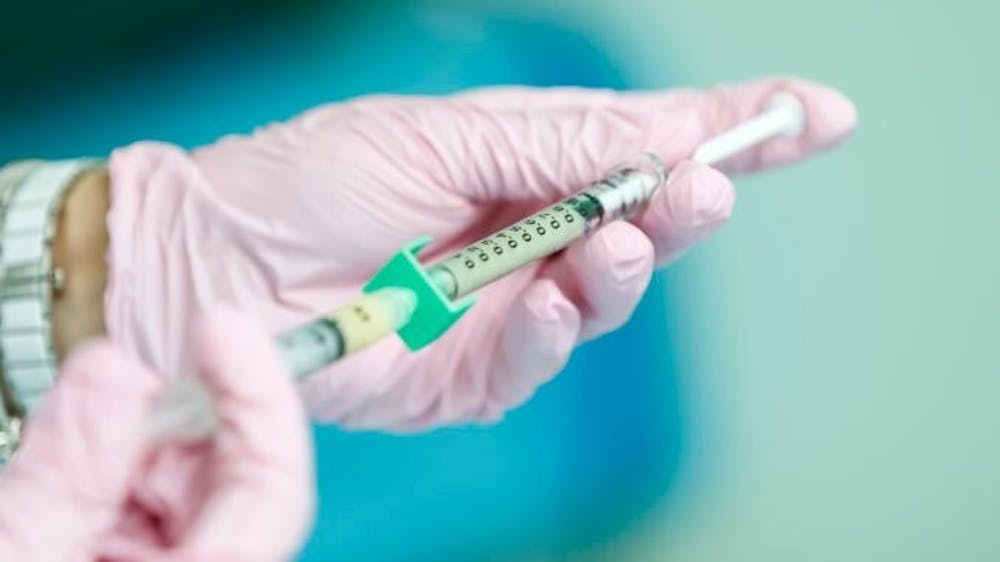The North Carolina Department of Health and Human Services expanded eligibility criteria for the monkeypox vaccine Sept. 6 in response to rising numbers of cases in the state.
The vaccine is now available for people who meet any of the following criteria, according to the NCDHHS:
- Anyone who had close contact in the past two weeks with someone who has been diagnosed with monkeypox
- Gay, bisexual or other men who have sex with men or transgender individuals who are sexually active.
- People who have had sexual contact with gay, bisexual, or other men who have sex with men, or transgender individuals in the past 90 days.
- People living with HIV, or taking medication to prevent HIV (PrEP) or who were diagnosed with syphilis in the past 90 days.
The expanded criteria protects more people in higher-risk categories, according to a release. After recent exposure, vaccination may reduce the severity of symptoms experienced and reduce the chance for contracting monkeypox.
Duke students who meet state criteria for the monkeypox vaccine can contact Student Health or their local primary care provider, who can place an order for the vaccine. Students can then go to Clinic 1J in the Duke Clinic Building to be vaccinated, John Vaughn, assistant vice president for student affairs and director of student health, previously told The Chronicle. Testing is available at Duke Health clinics for patients.
As the risk of community transmission is low, Duke currently has no operations or program changes planned.
As of Sept. 8, there have been 399 monkeypox cases and 12,845 vaccines administered in North Carolina. 98% of cases are among male-identifying individuals. The first case of monkeypox in North Carolina was reported on June 23.
Increased vaccine supply and current case data guided the recent decision to expand eligibility criteria for the monkeypox vaccine, according to the release. Under phase 4 of the U.S. Department of Health and Human Service’s National Vaccine Strategy, more doses of the monkeypox vaccine will be available.
According to the press release, the majority of North Carolina’s cases are still among gay, bisexual or other men who have sex with men. Around half of the cases are in individuals living with HIV, taking medication to prevent HIV or were recently diagnosed for sexually transmitted infection.
The spread of monkeypox is often through close and sustained skin-to-skin contact or through contact with the bodily fluids from the lesions of infected individuals. Symptoms for monkeypox are often flu-like and can also include unexplained bumps, sores, pimples or blisters.
To limit the spread of monkeypox, the NCDHHS recommends individuals take the following steps:
- Learn the facts. Anyone can get monkeypox. It spreads mostly through close skin-to-skin contact.
- Look for a rash. Get new rashes, lesions or sores checked by a healthcare provider. Talk with your partner about any monkeypox symptoms.
- Locate testing and vaccines for yourself or your community. There is no limit on testing. Talk to your doctor or local health department. Limited vaccine supply is prioritized for those currently most at risk and communities where the virus is spreading.
Get The Chronicle straight to your inbox
Signup for our weekly newsletter. Cancel at any time.
Amy Guan is a Pratt senior and a senior editor of The Chronicle's 119th volume.

